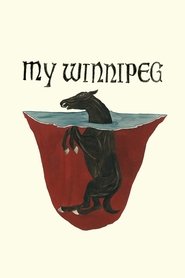After I shot all the stuff I’d scripted, I found I still had to discover my subject in the edit. And the subject kept changing. While I was out for dog walks, I found myself thinking of additional material to include. It’s like my dog talked me into a screenwriting partnership.[…]
[Some people] seemed to get what I was up to, because they instantly knew not everything in the film was true. They would come up to me after Q&As and say, “That film could easily be about my hometown.” They didn’t care about the lies! So, I learned a funny thing about lying, which has really fallen out of style since Trump buried us in lies—you get some pushback for fibbing now. But I did most of my lying, not in the film, but during the Q&As afterwards. […] You find the lie you like most and that becomes your new truth. After a while, the lies add up to a portrait of you, an arrangement of the lies you most like to tell. And in arranging this crap you reveal everything about yourself. You might as well be telling the truth. There’s a kind of lie you tell that is a perfect reflection of what you want the world to be, what you wish you were, and the kind of mischief you want to project out into the world. In short, it’s you you’re describing, and with your pants down around your ankles.
— Guy Maddin (Metrograph, 2023)
I'll watch a bad movie with a great deal of sympathy for the director. You just feel, "This seems like someone really smart made this movie, but they didn't have enough power or control over what happened." There's this sort of Ouija board effect — the entire machinery will make the film instead of a person. And it can happen easily… The director is just at the craft-services table eating a burrito, and they hear 'Action!' in the background.
— Interview with director [Guy Winnipeg] (Sight and Sound, Winter 2024)

